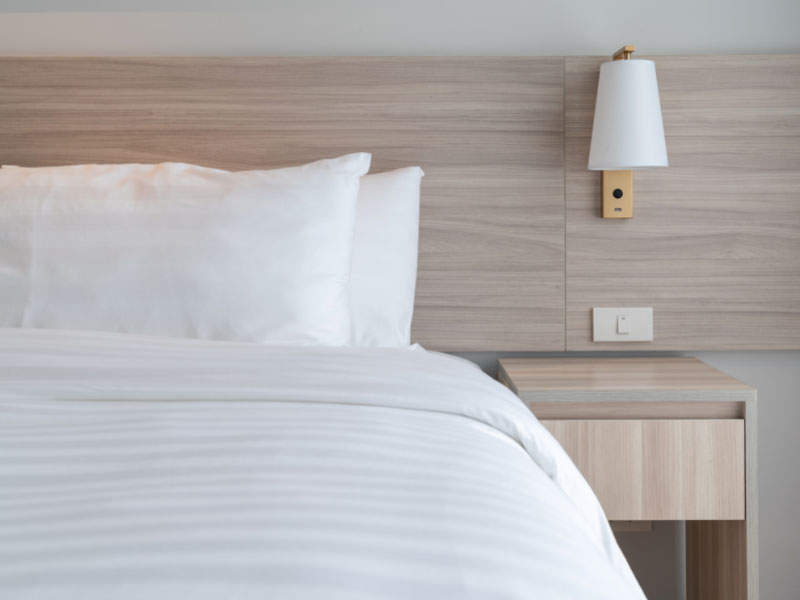Beds
5 tips for a good nights sleep
Did you know the average person spends 26 years of their life asleep? Surprisingly, we also spend 7 years trying to get to sleep! That’s 33 years or 12,045 days spent in bed.
Here is some of our top tips for getting a good nights sleep.
- Stick to a sleep schedule every night
It’s important to go to bed and get up at the same time every day. This helps to create a routine for your body and make it naturally easier for you to drift off to sleep. It’s tempting to go to bed earlier during the week and stay up later at the weekends but try to limit the difference in your sleep schedule on weeknights and weekends to no more than one hour. By being consistent it reinforces your body’s sleep-wake cycle.
- Pay attention to what you eat and drink
Did you know that over-indulging in food and alcohol, especially late at night, can disrupt your sleep pattern? If you have caffeine in the evenings, you are interfering with the process of falling asleep and preventing a deep sleep.
For most people, caffeine should be avoided for four to six hours before bedtime, as this is how long it takes the body to metabolise half of your (caffeine) consumption. If you are highly sensitive to the stimulant, you might consider cutting it out after noon (or perhaps entirely).
- Make sure your bed is comfortable
Your sleep quality is compromised when the mattress you are sleeping on isn’t comfortable for your body. This can lead you an interrupted sleep and you waking up tired or sore in the morning.
A good mattress will support your whole body while keeping your spine in a neutral position. It is also important to ensure your bed is the correct size for you; King Size and Super King Size offer more space and comfort, especially if you have little ones crawling into your bed late at night.
- Create a restful sleeping environment
A cool, dark and quiet bedroom is perfect for falling asleep. It is important to avoid the use of technology late at night, such as mobile phones, laptops and TV. These objects emit a blue light that disrupts your sleep-wake cycle. Instead focus on calming activities such as meditation, a good book or a bath before bed to help you relax and in turn promote a better nights sleep.
- Exercise Regularly
Moderate exercise such as swimming and walking on a regular basis can help to relieve stress and any tension built up during the day. It is equally important to avoid rigorous exercise such as running or a gym workout close to bedtime.

